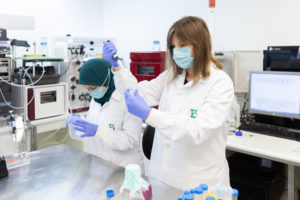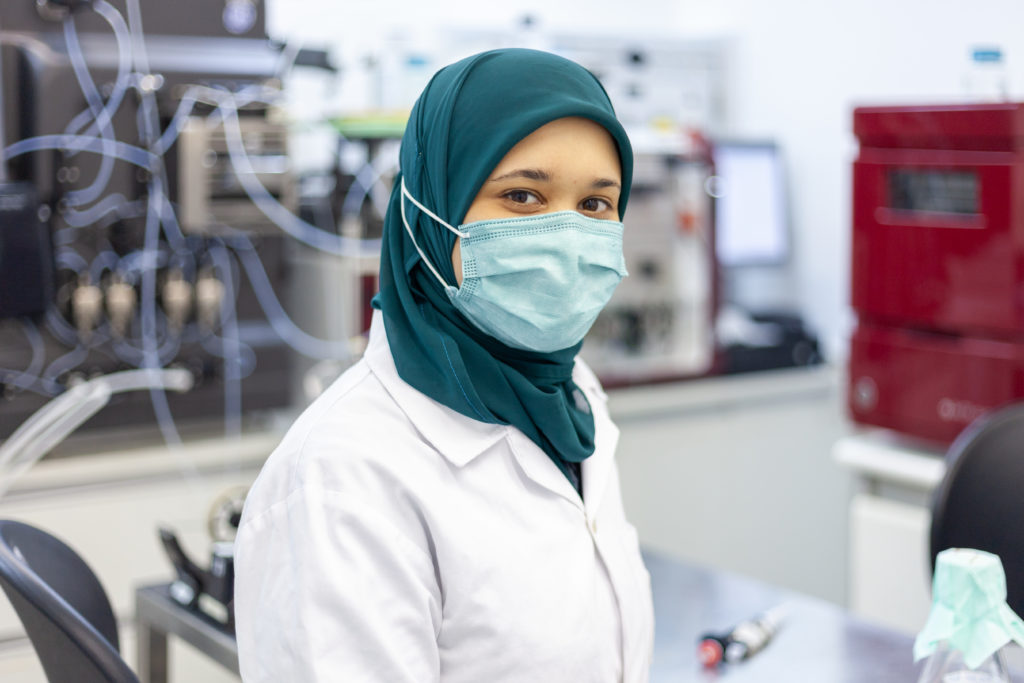São Paulo – Tunisian Hajer Aounallah, 27, conducts research at Brazil’s Butantan Institute. She is studying part of her doctorate in the Sciences Graduate Program – Toxinology of the Brazilian entity. The research was made possible by an academic agreement with the University of Tunis El Manar – Institut Pasteur in Tunisia, allowing her to obtain a Ph.D. from both institutions.
Aounallah fell in love with science in her childhood, observing the daily lives of her parents, both scientists dedicated to studying microbiology. “I’ve always been fascinated by things like DNA, which can only be seen with a microscope. We think life is what we see, but it’s not like that. Life is what you cannot see,” she told the ANBA team.
In 2018, when she came to Brazil for the first time, the initial idea was to spend two months in the country. “I had never gone outside my country by myself. On that first [flight to Brazil], I remember staying awake. I couldn’t sleep,” she recalls.

At the time, the researcher stayed on Brazilian soil for longer than expected and gradually adapted to everyday life. “The first time I was here, I felt like I was representing Tunisia, my country, my religion. In my head. Unfortunately, the problem is no one will remember your name when you do something [in another country]. People will remember your nationality. And that’s what I had in mind,” she said.
But as she spent time with the Brazilians, the Tunisian began to feel more at ease. “I never had to change anything about myself. Honestly, Brazilians helped me a lot because they accepted me for who I am. Not just in the lab but also outside [work]. They even adapt to me more than I adapt to them. If they go where I can’t go, they say they can change the location. And I also never try to change anything in their culture; I try to respect it,” she said.
Learning in the exchange
The Tunisian revealed that when she arrived in Brazil, she had to learn the local language from scratch. “Now, I understand almost 90% of the context in any conversation. I already spoke French – in addition to English and Arabic – and that helped me. French helps a lot because it is close to Portuguese. Especially in writing. It wasn’t easy at first, when I only spoke basic words to survive, including ‘obrigada,’” she laughed.
On the other hand, the scientist was also able to introduce her country to many Brazilians. “Many people didn’t know where Tunisia is,” she revealed.
Exchange findings
For the researcher, traveling is one of the best experiences one can have in life, and it is this value she also takes to studying abroad. “As a student, at some point, we discovered science is science [in Tunisia or Brazil]. But we complete each other. Returning to Tunisia, I will try to teach students about what I learned in Brazil,” she said.
Aounallah also stressed her desire that both countries give due importance to science, including more government support for researchers. The scientist is now returning to Tunisia, where she will preset her doctorate dissertation, which will have transmission by videoconference, with the participation of Tunisians and Brazilians.
So far, the researcher has plans to head to new countries. “I am delighted with what I learned here. Life is short, so I think it’s better to go for other opportunities worldwide. Maybe I’ll get back to Brazil. Who knows? It depends on the opportunity,” she concluded.
Translated by Elúsio Brasileiro




